Advantages of Hydraulic Conditioning Units
By Tommy Williams, Product Manager, AKG Thermal Systems
Wet Kits (or wet line kits) are kits put into trucks or agriculture equipment that have a Power Take Off (PTO). A PTO receives energy from a power source, such as a running engine, and transmits it to an application, such as an attached implement or separate machines. A variety of applications use these conditioning and cooling units including chemical transports, crude oil transports, CO2 delivery trucks, food transports, LP gas transports/bobtails, maintenance trucks, water trucks, utility and agriculture equipment, bulk feed trucks, and vacuum trucks. A hydraulic conditioning unit (HCU) is designed to be quiet, lightweight, and compact to meet the demanding needs of today’s market.
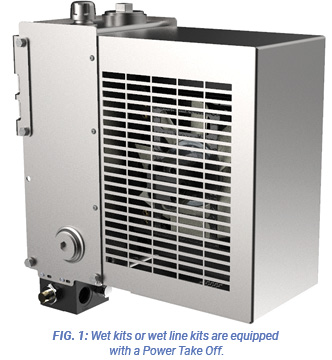 Typically reservoir volume, for the applications previously mentioned, is equal to 1-1/2 to 2 times the total pump flow. If you have a 25 gpm (gallons per minute) pump, the reservoir size will typically be 38 to 50 gallons. Hydraulic oil weighs 7.3 lbs per gallon, and a 50-gallon steel reservoir weighs 157 lbs dry, plus 365 lbs of oil creates a total weight of 522 lbs. Reservoirs have natural heat radiating capability.
Typically reservoir volume, for the applications previously mentioned, is equal to 1-1/2 to 2 times the total pump flow. If you have a 25 gpm (gallons per minute) pump, the reservoir size will typically be 38 to 50 gallons. Hydraulic oil weighs 7.3 lbs per gallon, and a 50-gallon steel reservoir weighs 157 lbs dry, plus 365 lbs of oil creates a total weight of 522 lbs. Reservoirs have natural heat radiating capability.
In real life, limited mounting areas, exposure in direct sun, and poor air circulation result in reduced heat dissipation. Exposure to direct sun can cause the reservoir to absorb heat, causing the oil temperature to rise above a safe working temperature. Replacing the reservoir with the cooler will save fuel because of reduced weight and the longevity of the hydraulic systems will last longer by conditioning and keep the oil cool.
Trucks install many accessories, like booms or cranes, and the truck’s PTO activates the wet kits’ hydraulic pump. Then heat begins to generate in the hydraulic system requiring a large reservoir or a cooling package. Without adding an auxiliary heat exchanger, the temperature in a reservoir system will continually rise with use. A long idle period may be necessary for the oil to cool, resulting in lost time.
The HCU is designed to fit in very tight spaces conveniently mounted on the frame rail. The narrow profile is also designed to condition and cool for a wide array of applications, such as:
- chemicals
- compressed gasses
- food grade
- crude oil
- vacuum pumps
- combo drive
- bulk feed trucks
- liquid transports
One of the more beneficial advantages of a wet kit is the considerable weight saving on a vehicle, allowing it to haul more products. Not only does this unit cool hydraulic oil, but it also stores and filters the oil as well. This feature eliminates the need for huge tanks housing large quantities of oil.
A fixed pressure compensated flow can outfit a hydraulic fan motor that automatically cycles the fan “ON.” This set up will spin the fan blade to the required RPM to maintain consistent oil temperature.
The electric fan motor option has a 12 VDC cooling fan, operated with a temperature control switch. This switch gets wired into keyed power. When the key is turned on, the switch will be ready to activate the fan when the oil temperature gets to a specific temperature setting. When the oil temperature falls below the set temperature, the fan will turn off.
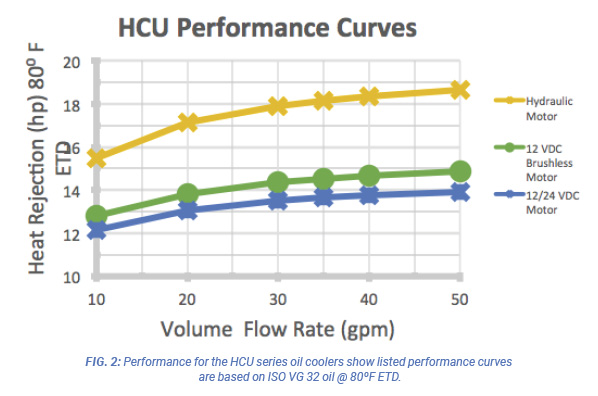
The more innovative 12 VDC brushless fan drives have much longer life spans. There are two option for fan control:
- A fan controller can regulate the fan speed (airflow to the cooler) to control the oil temperature; similar to the hydraulic fan control. When the oil temperature is below the desired set point, the fan will not operate.
- A temperature switches to cycle the fan on/off, when the oil temperature is below the desired set point, the fan will not work.
The information in Figure 2 summarizes the performance of each fan drive offered. The HCU series can handle applications at maximum temperatures and pressures of 250°F and 250 psi, respectively.

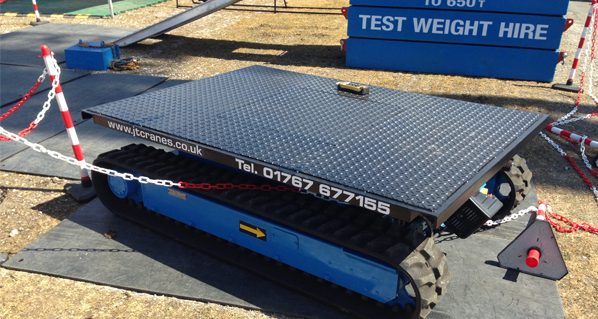
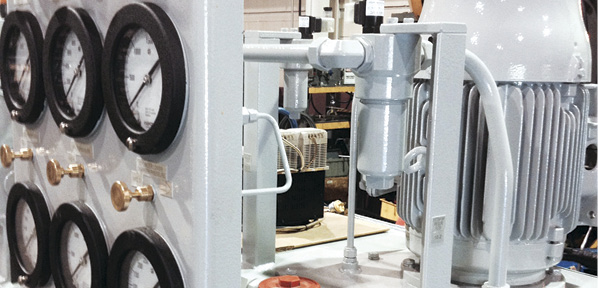
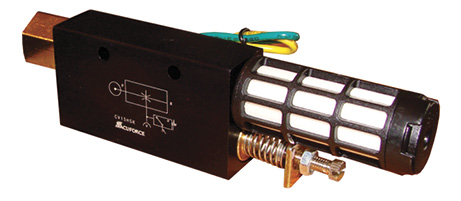

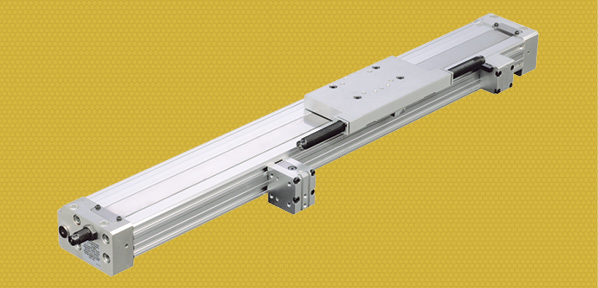

Hi,
can you offer an air conditioner for cooling hydraulic oil?
The oil tank is about 5000l